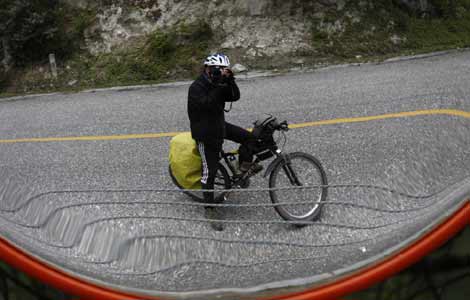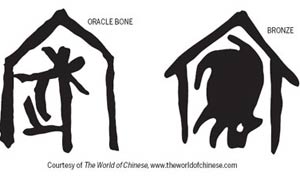'Cross-shopping' makes new buyers a tough sell
Updated: 2011-10-10 07:58
By Han Tianyang (China Daily)
|
|||||||||
Market now offers consumers the world's largest selection of models and brands
BEIJING- A recent survey by market research firm J.D. Power shows that fierce competition in China's auto market offers such a wide range of options that the majority of consumers closely compare models and have little preconceived brand loyalty.
Including inexpensive domestic vehicles, shoppers in China now enjoy the widest choice of cars in the world, with 94 brands and 471 models on the market, which results in a unique level of cross-shopping, according to the 2011 China Escaped Shopper Study released at the end of September.
China's new-vehicle shoppers on average consider three different brands before purchasing a vehicle, the report said, noting that the proportion of buyers who cross-shop before purchasing a vehicle increased to 60 percent in 2011 from 50 percent in 2007.
In comparison, only 24 percent of new-vehicle shoppers in India cite considering more than one model before they purchased a vehicle.
Chinese consumer behavior causes increased difficulty for dealerships in closing deals and retaining customers, and as a result, automakers and dealers face immense pressure not only on vehicle pricing, but also in marketing costs, the report said.
"Obtaining insights on shoppers' behavior - as well as their brand perceptions and rejection reasons - is critical to gaining new customers and increasing market share," said Jacob George, managing director of J.D. Power Asia Pacific, Shanghai.
"Only after understanding why shoppers walk away from a particular model can manufacturers identify weaknesses and make necessary improvements."
Price is the most-often cited reason for vehicle rejection, with 15 percent of potential consumers rejecting a particular model because the price is too high, according to the report.
Among those who reject due to price reasons, nearly one-half said the price is more than what they would pay for any vehicle.
In addition, 31 percent of them say they rejected a model because it offers less value for money compared with other models or brands.
Dissatisfaction with the vehicle's exterior design is the second-most-often-cited rejection reason, the survey showed.
Nearly 20 percent of new-vehicle shoppers in China say they rejected a model from a European manufacturer - excluding German brands - because they didn't like the exterior design, according to the report.
It said that German brands tend to have more success in localizing exterior vehicle design to appeal to shoppers in various regions of China, but it is an ongoing challenge, particularly for French brands.
Fuel economy is also among the top reasons for declining to buy, especially after the sharp increases in gas prices in recent years.
The survey said that fuel economy is becoming a challenge for nearly all manufacturers, but particularly for US brands, since about one in four of those who did not buy say they rejected a US model because they expected better fuel economy.
Other often-cited reasons for rejection include long delivery times and concerns about reliability. About 12 percent of rejecters say they declined to buy a German model because delivery would take too long.
Concerns about reliability is the main reason shoppers reject a Chinese brand model, with more than 10 percent of all shoppers surveyed disdaining a domestic model due perceived unreliability.
Across various J.D. Power automotive studies, some brands were rejected because customers thought models were less reliable than competitors, even though the actual reliability performance was better.
"To win customers' minds and wallets, increased marketing investment is needed to build up strong brand relationships," said Mei Songlin, general manager of research services, J.D. Power Asia Pacific, Shanghai. "Effective communication at the dealership level is also required to influence shoppers' choices during the purchase process."
China Daily
(China Daily 10/10/2011 page18)











